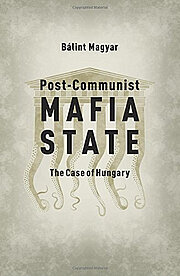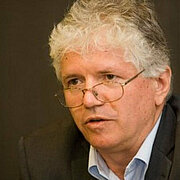Book presentation and discussion with Bálint Magyar, Miklos Marschall, and Alina Mungiu-Pippidi

Over the last years, many of the post-communist states of Central and Eastern Europe experienced a new type of politics, characterised by new political elites capturing the state and moving away from a transition to a more democratic system. In his recent book Post-Communist Mafia State: the case of Hungary, Bálint Magyar characterises this system as the 'organised over-world,' the 'state employing mafia methods' and the 'adopted political family,' applying these categories not as metaphors but elements of a coherent conceptual framework. The actions of the post-communist mafia state model are closely aligned with the interests of power and wealth concentrated in the hands of a small group of insiders. While the traditional mafia channelled wealth and economic players into its spheres of influence by means of direct coercion, the mafia state does the same by means of parliamentary legislation, legal prosecution, tax authority, police forces and secret service. The innovative conceptual framework of the book is important and timely not only for Hungary, but also for other post-communist countries subjected to autocratic rules.
Following a book presentation, Bálint Magyar will be joined by Alina Mungiu-Pippidi and Keno Verseck (tbc), to discuss perspectives on the post-communist mafia state, with a focus on Hungary and other states in Central and Eastern Europe. The panel will be chaired by Miklos Marschall.
Book presentation:

Bálint Magyar is a sociologist and former minister, writing on the post-communist mafia state. Until 1990, he worked as a researcher dealing with the post-war history of East-European societies. Between 1979 and 1990, he was a human right activist of the Hungarian anti-communist opposition movement. Since its foundation in 1988 until 2009 he was one of the leaders of the Hungarian Liberal Party (Alliance of Free Democrats) and took part in architecting the new democracy and negotiating about the peaceful transition. He was a member of the Hungarian Parliament between 1990 and 2010 and served as Minister of Education (1996-1998, 2002-2006). Since leaving parliament in 2010, he worked with UNICEF, Open Society Foundation, and European Roma Right Center in different missions as a consultant to enhance education reforms in countries in Eastern Europe. He also worked as an NDI (US) expert in supporting democratic transition and election observer in Libya and Tunisia. From September 2015 until October 2016, he was an Open Society Fellow for carrying out comparative studies and finalising his book The Post-Communist Mafia State: The case of Hungary.
Discussant:

Alina Mungiu-Pippidi is Professor of Democracy Studies at the Hertie School in Berlin. Her research centres on anti-corruption policy and good governance. Mungiu-Pippidi chairs the European Research Centre for Anti-Corruption and State-Building (ERCAS) where she manages the Horizon 2020 project DIGIWHIST and, until recently, the FP7 research project ANTICORRP.
Chair:

Miklos Marschall is a former director at Transparency International (TI). He joined TI as Director for Eastern Europe in July 1999, and in recent years served as Deputy Managing Director of Transparency International-Secretariat. Miklos was also Director for the International Anti-Corruption Conference (IACC). Before joining TI, from 1994 through 1998, he was the founding executive director of CIVICUS: World Alliance for Citizen Participation, a global network of NGOs and foundations to promote civil society. Between 1991 and 1994, he served as deputy mayor of Budapest, Hungary. Dr. Marschall was a Fulbright Visiting Fellow in 1988/89 at Yale University. He graduated as an economist from the Karl Marx University of Economic Sciences in Budapest in 1977. He received his doctorate from the same university in 1984.

